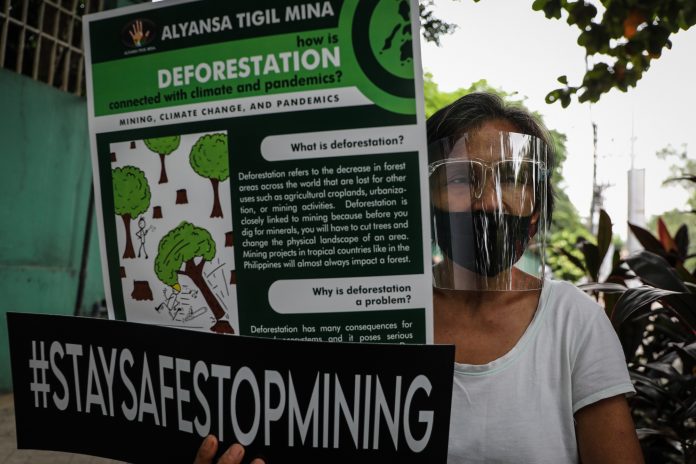A group of faith-based and activist groups reiterated calls for a mining ban following a landslide that killed at least 150 people in the southern Philippines.
“Ban on new mining agreements should be part of climate change mitigation,” said Dionito Cabillas, a priest of the Philippine Independent Church and lead convenor of the ecumenical group Isaiah Ministry.
He said the government should “prioritize life and all Creations over profit” and “planting trees would not suffice if the government will continue to allow destructive extraction projects.”
Rafael Mariano, a former agrarian reform secretary and chairperson of peasant group Kilusang Magbubukid ng Pilipinas, called on President Ferdinand Marcos to “rein in and decisively stop large-scale mining operations, illegal logging, quarrying, and other destructive projects.”
Mariano and Cabillas said the government should “rectify” the environmental degradation of the country and should abandon “environmentally destructive projects.”
In April 2021, former president Rodrigo Duterte lifted the ban on issuing licenses for new mining operations, making a 180-degree pivot from his previous anti-mining stance.
Fishers’ group Pambansang Lakas ng Kilusang Mamamalakaya ng Pilipinas urged Marcos to pursue mangrove reforestation.
The group said mangrove forests are the best measure to “prevent intense flooding caused by sea-level rise, devastating storm surges, among other threats of climate change.”
“Marcos cannot simply say we must address climate change and flood control while freely allowing foreign and local big businesses to plunder our land and natural resources,” said Mariano, reacting to Marcos’s statement blaming years of deforestation for the deadly landslide that flattened a community in Maguindanao province.
“I noticed that in all places where the landslides came down, the mountains were bald. That’s the problem,” said Marcos during his visit to Datu Odin Sinsuat town, the ground zero of the disaster that was brought by tropical storm Nalgae.
Mariano, however, said that it was during the administration of the late Ferdinand Marcos’ Sr., the president’s his father and namesake, that massive deforestation in the country accelerated.
“In case Marcos Jr. didn’t know, his father, Marcos Sr., was responsible for the massive deforestation of some eight million hectares of forest lands from the 1970s to 1980s,” said Mariano.
In 1975, the older Marcos enacted Presidential Decree 704 that allowed the destruction of mangrove forests through the Fishpond Lease Agreement provision.
Ronnel Arambulo, Pamalakaya spokesperson, said the country’s mangrove forests used to cover almost 450,000 hectares of coastal areas since the 1920s.
Two years after P.D. 704 was enacted, mangrove forests drastically shrunk to 220,243 hectares due to the rapid conversion of coastal areas into fishponds owned by big fishing and exporting firms.









